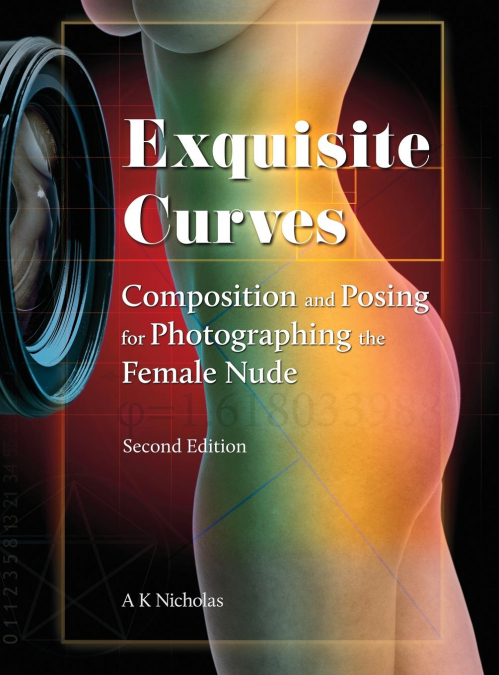
A K Nicholas
The lines of the female form are a masterpiece of nature, as the title of this book implies. But, there are infinite ways to represent this beauty. Your job, as a photographer, is to create work that is appealing, fitting, and meaningful. This book takes a two-pronged approach: first by teaching the academic and second by encouraging hands-on creativity.This guide presents the material through five main chapters: Composition, Technique, Posing, Self-Expression (Style), and Camera Assignments.The instruction is intended to be accessible to any novice with a serious interest in the composition and posing of female nudes. You do not need to be an artist or a photographer to understand the material but a basic understanding of camera operation is assumed. It is written for the uninitiated and for those who have no more than a modest amount of experience with photography or composition.The book begins with a discussion of visual literacy and its importance. Next are the abstract elements of composition, such as lines, colors, value, mass, depth, illusion, time, and motion. A section on design principles instructs in the assembly of these elements. Visual pathways, including cyclical, triangular, and others, are explained. Methods of design such as the rule of thirds, the golden mean, diagonal method, armatures, and forty-five degrees are all described and illustrated. The design instruction is rounded out with a discussion of commonalities and pitfalls in the design methods.The various camera techniques range from controlling framing, focus, and lighting. There is information about high-key, low-key, and minor-key lighting, complete with histograms and diagrams that show where the lights are set up. The section on post-processing mentions the importance of vignettes, contrast, monochrome (black and white) images, color mapping, the zone system, isolating images, and making composites (montages). The book includes 100 examples of nude poses (in addition to the numerous other samples) grouped into sections, such as standing, furniture, and props.The section on style addresses why we make a photograph and what constitutes an artistic body of work. There is a discussion of how your choice of genre, whether it is pinup, glamour, or fine art, figure study, or commercial design, influences your composition. The examination of style would not be complete without addressing how to analyze your work and sources of inspiration. The shooting assignments are real-world exercises that provide an opportunity to put what you have learned into practice. The book is rounded out with a glossary, index, and bibliography.